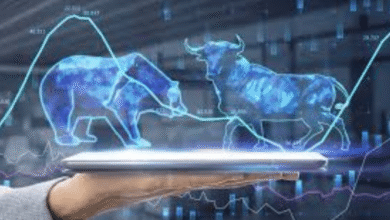Exploring the Pros and Cons of Commodity Trading: What You Need to Know

Introduction
Commodity trading has gained significant traction as a viable investment strategy, especially with the rise of online platforms that simplify the process. Unlike equity stocks, commodities are traded through various contracts, such as spot, futures, and options. The price of commodities is influenced by a variety of factors, including geopolitical events, government policies, and supply-and-demand imbalances. This article delves into the key benefits and drawbacks of commodity trading, helping you make an informed decision if you’re considering opening a commodity trading account.
Understanding commodity trading
Commodity trading involves buying and selling physical goods or their derivatives on regulated exchanges. Typical commodities encompass metals such as gold and silver, energy resources like crude oil and natural gas, and agricultural goods including wheat and coffee. In India, prominent exchanges like the Multi Commodity Exchange (MCX) and the National Commodity and Derivatives Exchange (NCDEX) oversee commodity trading activities. To start trading, you need a commodity trading account, which allows you to participate in this market.
Advantages of Commodity Trading
Diversification Benefits
Diversification is a fundamental strategy for risk management in investing. Online commodity trading provides a valuable opportunity to diversify your investment portfolio. Commodities frequently exhibit price movements that are independent of stocks and bonds. For example, during times of economic uncertainty or geopolitical tensions, investors might shift their funds from equities to safe-haven assets like gold, which can help stabilize their overall portfolio. Incorporating commodities into your investment portfolio can help diversify your risk and potentially boost your returns.
Inflation Protection
Inflation has the potential to diminish the value of conventional investments like stocks and bonds. However, commodities often act as a hedge against inflation. As prices for commodities rise during inflationary periods, the value of your investments in commodities can also increase. For instance, holding physical commodities like gold or silver can help preserve your purchasing power when inflation rates are high. This contrasts with stocks and bonds, which may decline in value as inflation increases.
High Liquidity
One of the key advantages of commodity trading is its high liquidity. Commodities can be bought and sold with ease, providing better control over your investments compared to less liquid assets like real estate or fixed deposits. The ability to quickly enter and exit positions allows for greater flexibility and responsiveness to market conditions, making commodities an appealing option for active traders.
Disadvantages of Commodity Trading
Risk of High Leverage
Commodity trading frequently utilizes leverage, which can magnify both profits and losses. Although leverage enables traders to manage larger positions with a relatively small amount of capital, it also raises the potential for substantial losses if the market shifts unfavorably. Managing leverage carefully is essential to avoid excessive risk and potential financial setbacks.
Increased Volatility
Commodities are known for their high volatility, with prices subject to frequent and sometimes extreme fluctuations. For example, commodities such as crude oil and gold can experience sharp price swings due to changes in global supply, demand, and geopolitical events. This volatility can make it challenging for traders to manage their positions and may lead to substantial gains or losses in a short period of time.
Exposure to Economic and Geopolitical Factors
Commodity prices are heavily influenced by economic and geopolitical factors. Changes in production levels, trade policies, and geopolitical tensions can all impact commodity prices. For instance, fluctuations in crude oil production or global trade conflicts can lead to significant price changes. As a commodity trader, staying informed about global developments and understanding their potential impact on commodity markets is crucial.
Choosing the Best Online Trading Account
Choosing the right trading platform is essential when venturing into commodity trading. A good trading account should offer a range of features to support your trading activities, such as real-time data, advanced charting tools, and reliable customer support. Look for platforms that provide seamless access to commodity markets, competitive fees, and user-friendly interfaces.
Conclusion
Commodity trading offers a range of benefits, including diversification, inflation protection, and high liquidity. However, it also comes with risks, such as high leverage, volatility, and exposure to economic and geopolitical factors. To navigate these challenges effectively, it’s important to choose the best online trading account that suits your needs and provides the necessary tools and support for successful trading. Additionally, consider starting with a free demat account with no annual charges to minimize initial costs and gain experience in the commodity market. By carefully evaluating your options and understanding the dynamics of commodity trading, you can make informed decisions and optimize your investment strategy.




